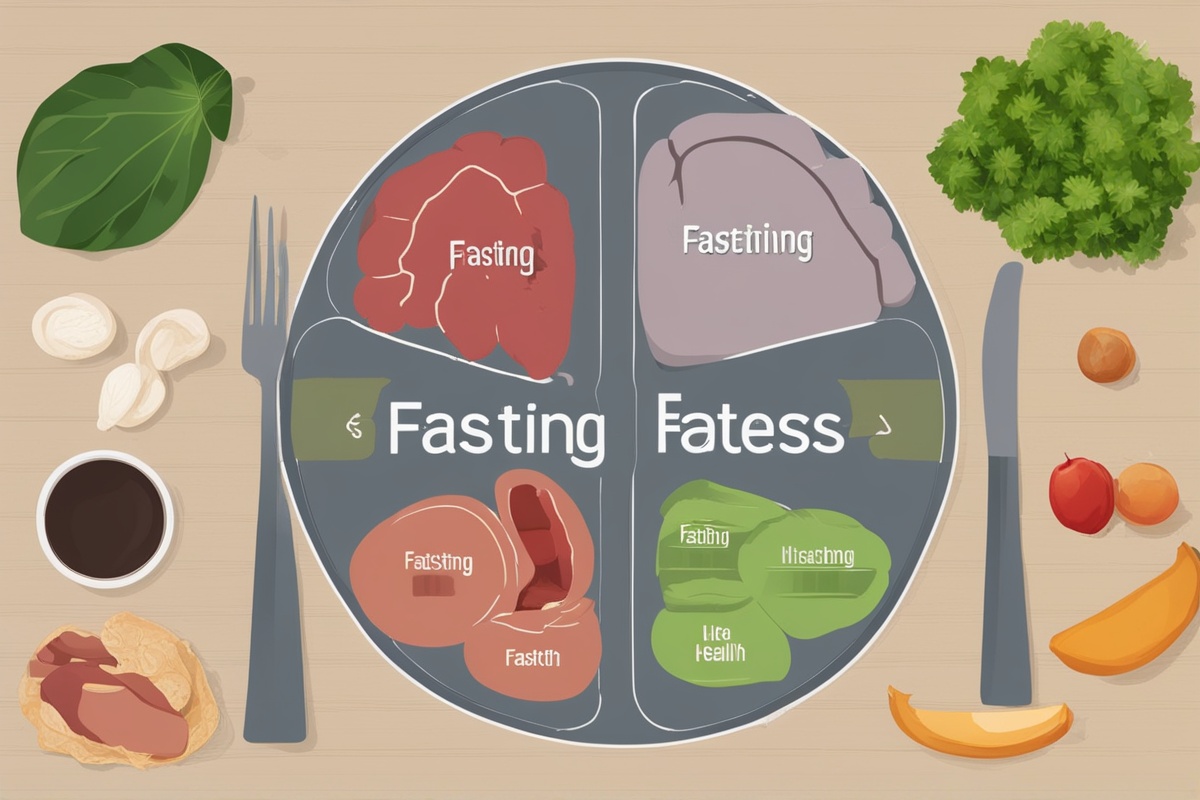Intermittent fasting (IF) has gained significant attention in recent years for its potential health benefits, ranging from weight loss to improved metabolic health. One area of growing interest is how intermittent fasting boosts liver wellness. The liver, a vital organ responsible for detoxification, metabolism, and nutrient storage, can benefit immensely from the metabolic shifts induced by fasting. In this comprehensive guide, we’ll explore the science behind intermittent fasting and its impact on liver health, providing actionable insights for incorporating this practice into your lifestyle.
What Is Intermittent Fasting?
Intermittent fasting is not a diet in the traditional sense but rather an eating pattern that alternates between periods of eating and fasting. Common methods include the 16/8 method (fasting for 16 hours and eating during an 8-hour window), the 5:2 diet (eating normally for 5 days and restricting calories on 2 non-consecutive days), and alternate-day fasting. The primary goal of IF is to give the body a break from constant food intake, allowing it to focus on repair and regeneration processes. When it comes to liver health, this break can be particularly beneficial, as it reduces the organ’s workload and promotes cellular cleanup. By adopting intermittent fasting, you may find that it boosts liver wellness through various physiological mechanisms, which we’ll discuss in detail below.
How Intermittent Fasting Boosts Liver Wellness
The liver plays a central role in processing nutrients, filtering toxins, and regulating blood sugar levels. However, factors like poor diet, excessive alcohol consumption, and sedentary lifestyles can lead to conditions such as fatty liver disease. Intermittent fasting boosts liver wellness by triggering autophagy, a cellular process where the body removes damaged cells and regenerates new ones. During fasting periods, the liver shifts from processing incoming food to burning stored fat for energy, a state known as ketosis. This metabolic switch reduces fat accumulation in the liver, improves insulin sensitivity, and lowers inflammation—key factors in maintaining liver health. Studies have shown that IF can significantly reduce liver fat content, making it a promising strategy for combating non-alcoholic fatty liver disease (NAFLD).
Reducing Liver Fat Through Fasting
Non-alcoholic fatty liver disease affects millions worldwide and is often linked to obesity and insulin resistance. Excess fat in the liver can lead to inflammation and, in severe cases, cirrhosis. Intermittent fasting boosts liver wellness by promoting fat loss, both systemically and within the liver itself. When you fast, your body depletes glycogen stores and begins to break down fat for energy, reducing the lipid buildup in liver cells. Research indicates that even short-term fasting can lower liver enzyme levels, a marker of liver stress. For those looking to support their liver naturally, IF offers a sustainable approach. To learn more about managing liver fat, check out our detailed guide on natural ways to reduce liver fat.
Improving Insulin Sensitivity and Liver Function
Insulin resistance is a major contributor to liver conditions like NAFLD, as it causes the liver to store more fat and struggle with glucose regulation. Intermittent fasting boosts liver wellness by enhancing insulin sensitivity, allowing the liver to process sugars more effectively. During fasting, insulin levels drop, prompting the body to use stored glucose and fat for energy. This reduction in insulin burden gives the liver a chance to recover and function optimally. Over time, improved insulin sensitivity can prevent the progression of liver damage. For additional insights on insulin and liver health, explore our post on how insulin resistance affects the liver.
Detoxification and Cellular Repair Benefits
The liver is the body’s primary detoxification organ, constantly filtering out harmful substances. However, chronic overeating and exposure to toxins can overwhelm its capacity. Intermittent fasting boosts liver wellness by giving the organ a much-needed break from processing food, allowing it to focus on detoxification and repair. Fasting triggers autophagy, which clears out damaged cellular components and reduces oxidative stress in the liver. This process not only supports liver function but also protects against long-term damage. If you’re curious about the broader benefits of detoxification, read our article on effective liver detox methods.
Practical Tips for Starting Intermittent Fasting
If you’re new to intermittent fasting and want to leverage its benefits for liver health, start slow and listen to your body. Begin with a beginner-friendly method like the 16/8 plan, where you fast for 16 hours (including sleep) and eat during an 8-hour window. Stay hydrated during fasting periods, as dehydration can strain the liver. Focus on nutrient-dense foods during eating windows to provide your liver with essential vitamins and minerals. Avoid overeating or consuming processed foods, as they can counteract the benefits of fasting. For meal ideas that support liver health, check out our guide on liver-friendly meal plans. Additionally, consult a healthcare provider before starting IF, especially if you have pre-existing liver conditions or other health concerns.
Disclaimer: The information provided in this article is for educational purposes only and should not be considered medical advice. Intermittent fasting may not be suitable for everyone, particularly individuals with certain medical conditions, pregnant or breastfeeding women, or those with a history of eating disorders. Always consult a qualified healthcare professional before making significant changes to your diet or lifestyle, especially if you have concerns about liver health or other medical issues.
References
- Effects of Intermittent Fasting on Health, Aging, and Disease – New England Journal of Medicine
- Intermittent Fasting and Non-Alcoholic Fatty Liver Disease – Frontiers in Nutrition
- Intermittent Fasting: Surprising Update – Harvard Health Blog
- Intermittent Fasting: What Is It, and How Does It Work? – Mayo Clinic
- Autophagy in Liver Diseases – Journal of Clinical Investigation
This content is for informational purposes only and not a substitute for professional advice.






